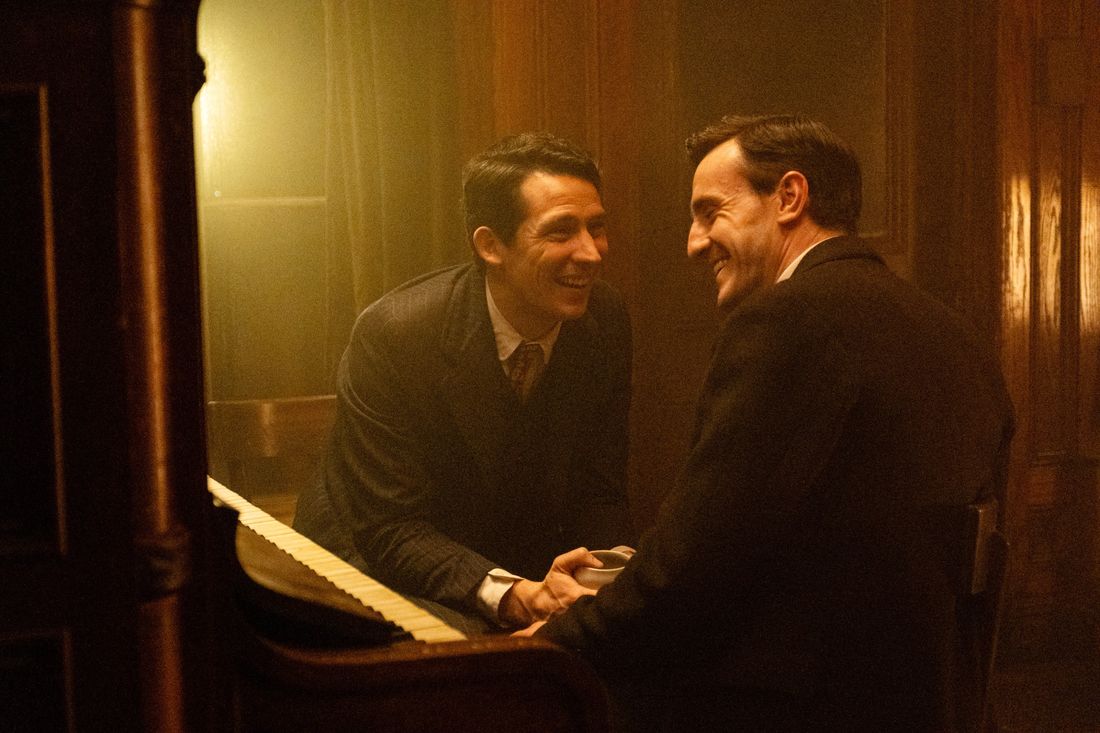
At the Cannes Film Festival, Paul Mescal, the star of “The History of Sound,” expressed his frustrations regarding comparisons being drawn between his film and “Brokeback Mountain.” While it can be flattering to have one’s work compared to a landmark movie like “Brokeback Mountain,” these comparisons might feel unfair. To clarify, “The History of Sound” – directed by Oliver Hermanus and based on short stories by Ben Shattuck – is another queer romance featuring two rising stars. Like “Brokeback Mountain,” it explores characters who are profoundly affected by a natural idyll shared together, and later struggle with societal norms. Both films deal with longing that’s eventually manifested in physical symbols. However, unlike “Brokeback Mountain,” “The History of Sound” seems to treat this longing more as a thematic motif than an emotionally intense experience. The characters in the film – who are more preoccupied with discussing music than their inner feelings – seem to express their emotions with a noticeable delay. Contrary to expectations for a romance, “The History of Sound” has an unexpectedly reserved tone.
Mescal portrays Lionel Worthing, a young farmer from Kentucky, who unexpectedly discovers he has a stunning voice that earns him a spot at the New England Conservatory of Music in 1917. There, he crosses paths with David White, a sophisticated music student from Europe, who shares Lionel’s deep appreciation for traditional folk songs. It quickly becomes clear that they share a special bond. Later, when David, known for his exceptional musical memory, encourages Lionel to sing an obscure tune he hasn’t heard before, the crowd is captivated by Lionel’s rendition of “Silver Dagger.” David, moved both by the song and the singer, responds with a few melodic chords on the piano, then sits back, momentarily speechless. They frequent a local bar where this heartfelt performance takes place.
From that point onwards, it seems as if their eventual union is predestined, but due to war, they spend only a brief period together before David goes off to fight and Lionel is sent back to his rural roots. However, they do meet again after about a year, during which time David has secured a job at a university in Maine and has been collecting songs for what he refers to as a research project within the music department. They venture through the woods, sleeping in a tent at night, and during their journey, they convince local residents to record their voices using advanced technology like wax cylinders that capture sound vibrations. This idyllic period unfortunately comes to an end for both of them.
Hermanus, renowned as a South African filmmaker for his 2022 remake of Akira Kurosawa’s Ikiru, scripted by Kazuo Ishiguro, is characterized by a minimalist approach. The film The History of Sound showcases a subdued elegance that while not dull, strives to convey refinement with an intensity that sometimes feels overbearing. Scenes like Lionel and his mother (Molly Price) sitting in the dark at their farmhouse evoke the style of Dutch masters. As Lionel explores the grand English estate of his aristocratic girlfriend from Oxford, the muted visuals begin to feel less like an artistic choice, such as a means to depict a world separate from his love, and more like a portrayal of understated luxury.
The film’s storytelling is not only reserved but also aims to generate depth. Narrative interludes provide glimpses into Lionel’s thoughts, yet Hermanus often prefers to let the character’s internal monologue unfold in silent contemplation, leaving gaps that viewers are invited to fill with deeper emotional introspection than what is explicitly presented onscreen.
Mescal delivers an exceptionally thoughtful performance in wire-framed glasses, but during the second half of the film, where his character journeys from Italy to England and then back to Kentucky, he seems like a solo comedian attempting to maintain the stage without a partner.
In a simpler and more conversational style:
Just like Lionel, the film titled “The History of Sound” seems to get caught up in its lively adolescent phase, which is filled with more vibrancy than anything else presented later on. However, this period is less convincingly portrayed as a mystery that needs solving. David, played by O’Connor, appears to be the more open character, shown with furrowed brows and an almost pained expression whenever he looks at his lover. Yet, it’s Lionel, in a modest manner, who consistently tries to connect more deeply but is gently turned away by David, who believes his path is already decided.
The early scenes featuring them together are the most captivating, with Lionel always following David’s lead and trying to understand him. This intensity continues until the very end when the film fast-forwards to 1980, introducing a surprising music drop and Chris Cooper as an older Lionel, finally experiencing some closure.
The opening and closing sequences are the only ones where “The History of Sound” truly comes alive, while in other scenes it maintains a certain distance, holding back without any particular reason other than to give off an air of sophistication.
Read More
- All Golden Ball Locations in Yakuza Kiwami 3 & Dark Ties
- Hollywood is using “bounty hunters” to track AI companies misusing IP
- NBA 2K26 Season 5 Adds College Themed Content
- What time is the Single’s Inferno Season 5 reunion on Netflix?
- Gold Rate Forecast
- Mario Tennis Fever Review: Game, Set, Match
- Exclusive: First Look At PAW Patrol: The Dino Movie Toys
- Train Dreams Is an Argument Against Complicity
- EUR INR PREDICTION
- The Abandons: Netflix Western Series Disappoints With Low Rotten Tomatoes Score
2025-09-12 22:54